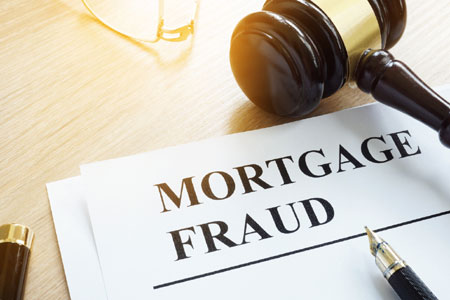 Deed fraud, mortgage fraud and similar forms of residential real estate crime have become fairly commonplace in recent years. While Notaries are seldom the sole driving force behind these crimes, a recent grand jury report highlights the fact that improper notarizations are a crucial element of real estate crimes.
Deed fraud, mortgage fraud and similar forms of residential real estate crime have become fairly commonplace in recent years. While Notaries are seldom the sole driving force behind these crimes, a recent grand jury report highlights the fact that improper notarizations are a crucial element of real estate crimes.
The report, issued in December 2018 by a grand jury in New York City, states: “In every case before this grand jury, a Notary Public was a willing or unwitting facilitator in the crime… In virtually every fraudulent transfer described to this grand jury, a faulty notarization was essential to the successful completion of the crime.”
Even innocent Notaries who have nothing to do with a particular scheme could be victims of fraudsters who forge their seals — an act akin to Notary identity theft.
The report describes deed fraud as an “epidemic,” with law enforcement officials in New York City receiving 2,000 complaints between 2014 and 2018. As a result, the grand jury recommended a number of reforms, and top of the list was a series of sweeping changes to the state’s Notary laws.
Though the grand jury concerned itself with crimes in New York City, it’s findings and recommendations are applicable to communities across the country.
Philadelphia, Kansas City, Chicago, Detroit and San Diego among other cities, have been plagued with similar waves of deed fraud, according to media reports and government announcements. California, Florida and Nevada are among the states hardest hit by mortgage fraud, which often involves a bad notarization.
How the fraud works
Deed fraud schemes are fairly simple. They start with scammers looking for vulnerable properties. Often they are properties whose owners are deceased, or are empty for some reason.
The scammers then forge the owner’s signature on a deed, transferring ownership to a straw buyer, bogus company or fictitious person. This is where the Notary plays a role. According to the report, improper notarizations fall into several categories:
- The signature on the deed was notarized without the signer being present.
- The Notary affixed their seal and signature to unsigned documents.
- The Notary failed to spot a fake ID.
- The scammers stole or forged a Notary’s seal.
The scammers then have the deed recorded, which allows them to take out a mortgage or sell the property to an unsuspecting buyer.
Recommended Notary reforms
The grand jury sees Notary reforms as a way to “prevent fraudsters from manipulating the system to obtain ownership of others’ properties illegally.”
The grand jury recommended a number of specific reforms. They include the following:
- Require Notary applicants to submit their fingerprints to help the Secretary of State’s office to verify the applicant’s true identity and ensure that they have not committed a disqualifying crime.
- Require education to obtain or renew a Notary commission.
- Require Notaries to maintain a chronological record of all their notarizations.
- Increase criminal sanctions for Notary misconduct.
The reforms are needed because, as the grand jury noted, Notaries are the “first line of defense for combatting real estate fraud.”
The reforms are necessary because the stakes are so high. “While it can take as little as a forged deed to transfer ownership of real property, it is extremely challenging, and sometimes impossible, to undo a fraudulent transfer,” the report noted. Victims often are ill-equipped or lack the means to pursue the legal steps necessary to undo the fraudulent transfer.
While the grand jury’s recommendations apply only to New York state, they can be applied to many other states. Only a few jurisdictions, for example, require fingerprinting and background screenings for Notary applicants. And most states do not require any education for Notaries.
Related Articles:
How one Notary was saved from a costly lawsuit over a forged seal
Personal Appearance: The best protection for Notaries
Additional Resources:
Tips & Tutorials for Notaries